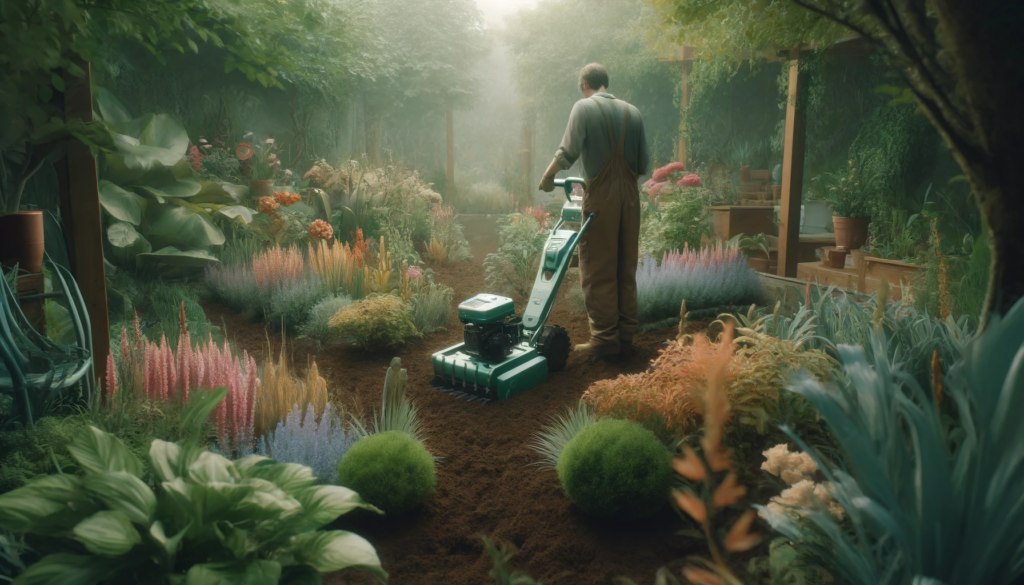Electric tillers have revolutionized the way we prepare our gardens, making the task easier, faster, and more efficient. In this article, we will delve into the strengths and capabilities of electric tillers, comparing them with their gasoline counterparts, and highlight the factors you should consider when choosing one.
Understanding Tilling Tools
Hand Tillers vs. Power Tillers
Hand tillers, such as hoes and spades, are simple, lightweight metal tools perfect for creating raised beds and managing small garden areas. On the other hand, power tillers are designed for more significant tasks, capable of digging deeper and moving dirt quickly, thanks to their robust construction, usually made of plastic or steel.
Electric Tillers: A Closer Look
Electric tillers are a subset of power tillers, offering a balance of power and convenience. They come in various sizes, from mini cultivators suitable for small gardens to more extensive front tine tillers for moderate tilling tasks. Their lightweight design is a hallmark, often powered by electricity through a cord or battery, making them an attractive option for gardeners of all levels.
Choosing the Right Electric Tiller
Power Needs and Garden Size
Before investing in an electric tiller, consider the size of your garden and the power required. Electric tillers are ideal for small to medium-sized gardens. Decide between a smaller cultivator for minor tasks or a more powerful tiller for extensive tilling.
Model Types: Self-propelled vs. Walk-behind
Electric tillers come in two main types: self-propelled and walk-behind. Self-propelled models offer ease of use in larger areas, while walk-behind tillers provide precision and control in smaller gardens.
Corded vs. Cordless
The choice between corded and cordless models depends on your garden’s size and accessibility. Corded models provide uninterrupted power, while cordless tillers offer mobility and convenience, limited only by battery life.
Comparing Electric and Gasoline Tillers

Power Source and Efficiency
Gasoline tillers rely on internal combustion engines, requiring regular maintenance and fuel. Electric tillers, whether corded or battery-powered, offer a more environmentally friendly and maintenance-free solution, with many models now featuring efficient lithium-ion batteries.
Size and Convenience
Gas tillers typically offer a wider range of sizes, including large rear-tine models for breaking up tough soil. Electric tillers, while generally smaller, provide enough power for most gardeners in a more compact and easy-to-handle form.
Maintenance and Cost
Gas tillers demand ongoing maintenance, from oil changes to spark plug replacements. Electric tillers, in contrast, require minimal upkeep, making them a cost-effective and user-friendly option.
Evaluating Your Options
When choosing between an electric and a gasoline tiller, consider your garden’s size, your physical ability, and your willingness to perform maintenance. Electric tillers, with their ease of use, lower maintenance, and environmental benefits, are an excellent choice for most gardening needs.
Manufacturers of Electric Tillers
Notable manufacturers like RYOBI, Greenworks, and EGO offer a range of electric and battery-powered tillers, ensuring quality options for every gardener.
Tilling with an Electric Tiller
Using an electric tiller involves turning it on, usually with a simple push button, and guiding it across your garden. The tines do the hard work, digging and turning the soil as you move the tiller forward. For obstacles or finishing up, reverse the process for a smoothly tilled garden ready for planting.
Summing It Up

Electric tillers are powerful tools that can significantly ease the labor of preparing your garden. With various models to choose from, they offer a solution for every gardener’s needs, combining efficiency, convenience, and affordability. Whether you’re a novice or an experienced gardener, an electric tiller could be the perfect addition to your gardening toolkit.
For more information on lawn care and gardening tools, consider visiting resources like lawn care basics, lawn mowers and tractors tips, and choosing the best electric pressure washers. These resources can provide valuable insights and help you make the best choices for your garden.

